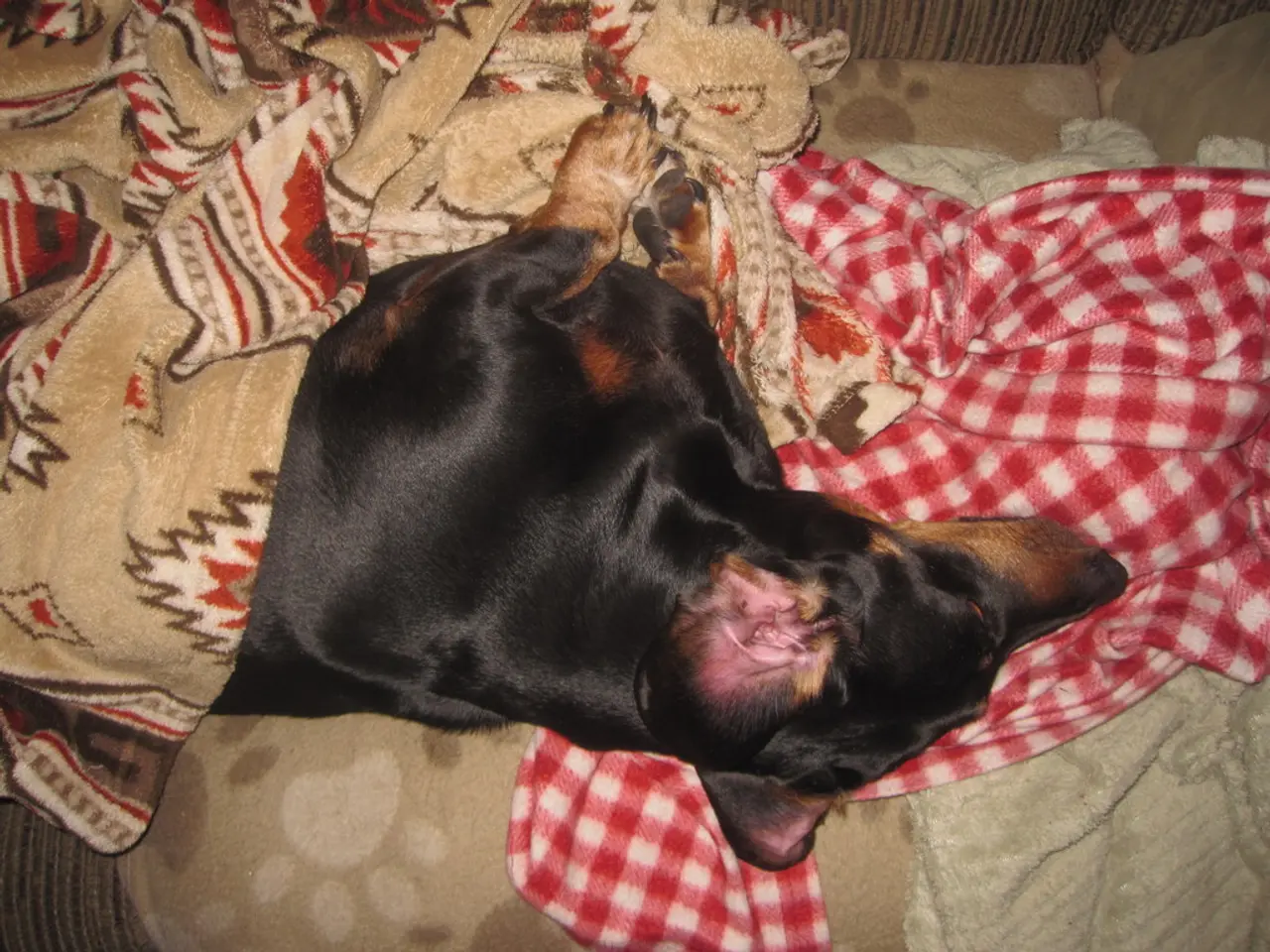Dog racing industry accused of carrying out 'inhumane' and 'unethical' surgeries on greyhounds, alleges Member of Parliament
In Ireland, over 5,000 greyhound litters have been born through surgical artificial insemination (SAI) in the past decade, a practice that has recently come under scrutiny due to concerns about animal welfare. Sinn Féin TD Dessie Ellis, Senator Chris Andrews, and advocacy groups like Dog Law Ireland are leading the charge, advocating for a ban on the procedure, which they describe as "barbaric" and "invasive."
The SAI process involves anaesthetising the female greyhound, making a small incision in her abdomen, lifting the uterus out, injecting semen directly into the uterus, and then placing the uterus back into the body and stitching up the wound. Critics argue that this procedure causes unnecessary pain and stress and is not for the welfare of the dog, but for making money for their owners.
The procedure puts additional pressure on the abdominal wounds and greyhounds are prone to certain complications like blood clotting, which can be exacerbated by this unnecessary surgical procedure. The British Veterinary Association views this practice as highly unethical and very painful for greyhounds.
In March 2023, the Cabinet approved a report recommending the prohibition of the practice in all breeds of dogs. However, as of now, no ban has been implemented, and the Department of Agriculture is currently reviewing public submissions following a consultation on banning the practice. The submission deadline was July 26th, 2024, but the department has not published its conclusions yet.
Sinn Féin's Dessie Ellis has been vocal in his criticism of the delay, stating it is a "question of cruelty to animals, animal rights." Minister of State Robert Troy has assured that the results will be published "in due course" and will contribute to the legislative process.
The Government supports the greyhound industry on the condition that Rásaíocht Con Éireann upholds welfare standards. Since 2019, Greyhound Racing Ireland has spent €19.3 million on traceability care and welfare. The system ensures racing greyhounds are properly registered and traceable throughout their lives.
A traceability system for greyhounds came into operation in January last year. The system aims to improve the welfare of greyhounds by reducing the number of unregistered dogs and promoting responsible breeding practices.
While the debate over the ban continues, it is worth noting that SAI is already banned in countries like the UK, Sweden, and the Netherlands. The Veterinary Council of Ireland updated its code of professional conduct last year to prohibit vets from carrying out the procedure.
As the issue of SAI in greyhounds continues to be debated, animal welfare advocates remain hopeful that a ban will be implemented in the near future, ensuring the wellbeing of these animals.
The ongoing debate in Irish policy-and-legislation concerning the ban on surgical artificial insemination (SAI) in greyhounds, a practice perceived as barbaric and invasive, is underscored by political sentiment and general-news discussions. The Cabinet recently approved a report recommending prohibition, yet as of now, no ban has been implemented due to ongoing departmental reviews and public consultations. Despite the delay, Sinn Féin's Dessie Ellis continues to advocate for prompt action, questioning the delay as a matter of animal rights and welfare.








